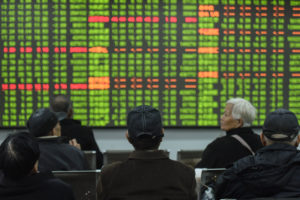MANILA, Philippines—The Bangko Sentral ng Pilipinas (BSP) expected inflation rate to remain elevated in the third month of 2021 but held back by easing electricity rates and the effect of a cap on meat prices.
In a statement, the BSP said it expected prices of basic goods and services to accelerate from 4.2 to 5 percent in March which would be near the 4.7 percent consumer price index for February.
BSP Governor Benjamin Diokno said the decline in power rates charged by Manila Electric Co., lower prices of some food items and a cap on meat prices “are the main sources of downward price pressures during the month.”
“However, these factors could be partly offset by higher domestic oil prices and the depreciation of the peso,” he added.
Barring any further spike in the inflation rate, the central bank will be able to keep its key interest rate at historic low levels of 2 percent for a longer period in keeping with its policy of trying to help economic recovery by keeping monetary policies as loose as long as possible.
Diokno, however, also said the BSP would not hesitate to raise overnight borrowing rate—which banks use as guide for their lending rates—if inflation shows itself to be driven by demand rather than supply, which would be beyond the ambit of monetary policy.
“Moving forward, the BSP will continue to monitor evolving economic and financial conditions to ensure that the monetary policy stance remains consistent with the BSP’s price stability mandate,” Diokno said.
Earlier, the BSP chief stressed that the current commodity price spike was not caused by economic expansion but supply bottlenecks that do not merit monetary response.
According to Diokno, the Philippines is far from experiencing this phenomenon called “reflation”, since higher inflation seen in recent months was the result of a “transitory” mess in supply of a narrow range of agricultural products and an increase in oil prices worldwide.
“Reflation is the act of bringing inflation from very low levels back up to its long-term trend after a period of disinflation and economic downturn,” he said at an online briefing. “This is not the case.”
He explained that the current inflation uptick was expected to be temporary, and the BSP typically accommodates initial effects of supply shocks as these tend to be short lived in nature.
Similar to previous supply shocks, non-monetary interventions, like measures to moderate some food prices, remained the most appropriate response to the current inflation uptrend, he said.


